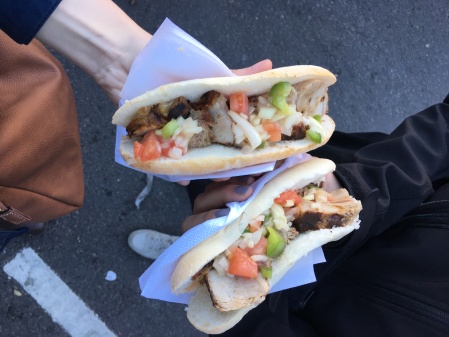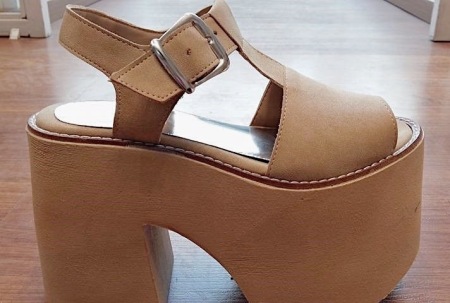
A Japanese food stand at the Tonghua Street night market, one of the more local ones in Taipei
One of my favorite parts of living in Taipei is the food, and there’s nowhere better to find good late-night food than in one of the city’s many night markets. These night markets are spread throughout the city and typically busiest on the weekends. You’ll find traditional Taiwanese food, a smattering of food from other countries (mainly Japan, Korea, and Vietnam), and all kinds of snacks.

Taiwanese hamburger (掛包 guàbāo), a popular snack made with a steamed bun, pork, pickled vegetables, peanuts, and cilantro. I actually had to get a second one because I ate it too fast and forget to take a picture!
Celebrated by tourists and locals alike, night markets offer a fusion of local and foreign flavors that can’t be matched by visiting a single restaurant alone. One thing that I appreciate about living here is that, at least in general, food safety seems to be less of a concern than it can be in places like mainland China or Thailand. That being said, you can be as adventurous as you want, with choices ranging from fried dough sticks (油條) and egg cake/quiche (蛋餅) to octopus and the infamous stinky tofu. One thing I’ve learned is genuinely how difficult it can be deciding what to eat when there are so many different smells, stands, and options, but that’s one of the things that’s best about these markets – you can keep coming back for more.

While it’s widely considered a great location if your apartment is located near a metro stop, I would also add living near a night market to this list. Like metro stops, there are plenty of them throughout Taipei and some bigger and busier than others, but having access to these is a great way to satisfy cravings for street food while also seeing and interacting with such a bustling and extraordinary environment. Whether it’s the more popular ones like Shilin or something a little more modest, night markets are really one of the things that make this city special and something I’ll miss when I go back to the U.S.

Wonton (餛飩 húndùn) Soup
Bryan



 Posted by bryanintaipei
Posted by bryanintaipei 







